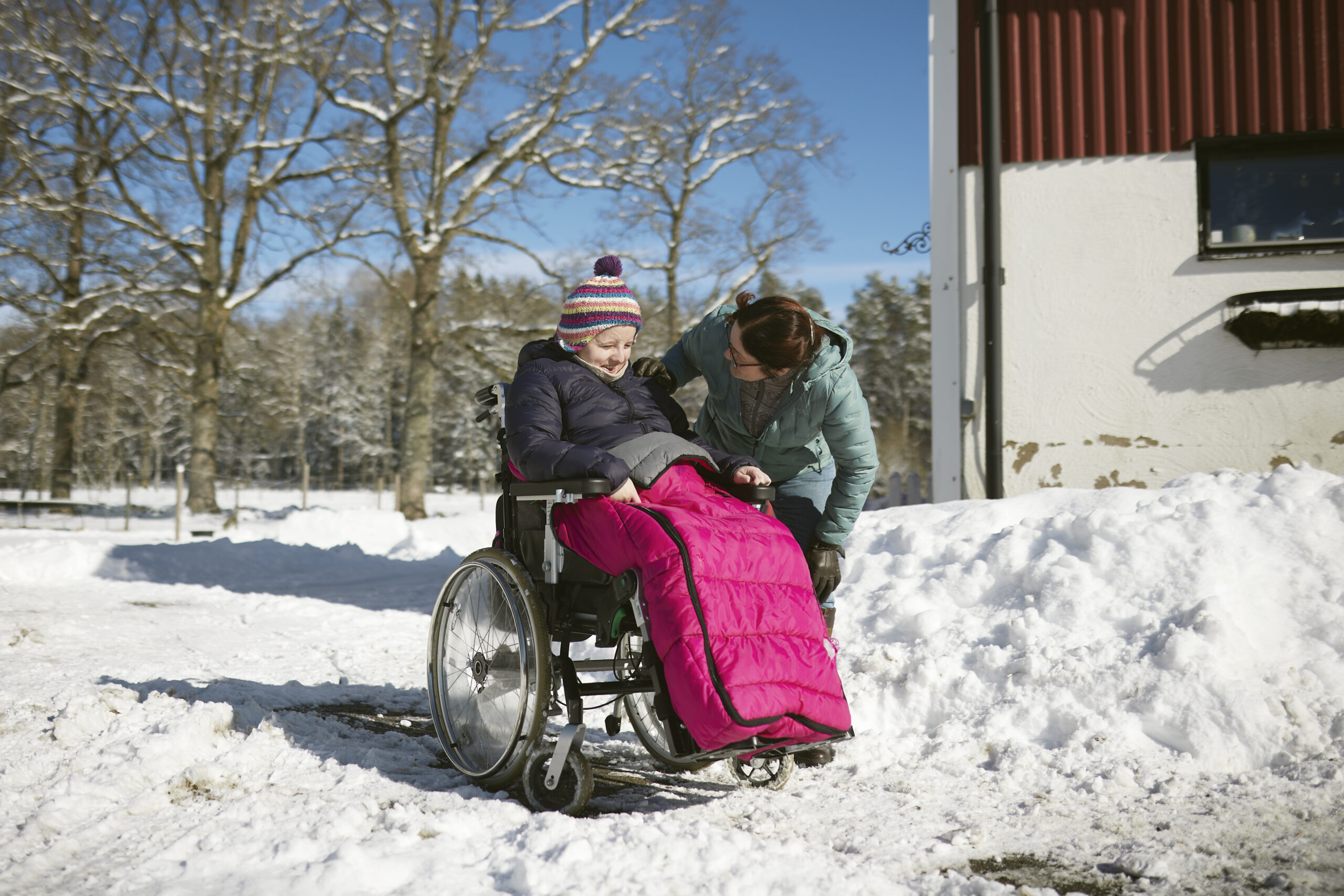Winter can bring some unique challenges for families, especially for those raising medically complex children. However, with thoughtful preparation and a proactive mindset, you can turn these challenges into opportunities to ensure your child stays safe, healthy, and comfortable through the season. Here are some tips to help you confidently care for your child this winter.
1. Stay on top of vaccines and regular checkups
Be proactive with your child’s health by scheduling winter check-ins with their doctor to go over their specific health needs during the season. The National Library of Medicine states the chronic conditions and functional limitations experienced by children with medical complexities place them at disproportionate risk for COVID-19 transmission and poor outcomes. Many medically complex children are also more susceptible to respiratory challenges during winter, such as cold, flu and respiratory syncytial virus (RSV), says the National Library of Medicine. Vaccination against the flu is especially important for children with neurologic conditions since they are at a higher risk of experiencing complications if they become ill from the flu, says the Centers for Disease Control and Prevention (CDC). To keep your child safe from contracting a respiratory infection, make sure their vaccinations are up to date, including protection against flu and COVID-19.
2. Prioritize safe environments and proper hygiene practices
It is also important to consider where you take your child during the winter to avoid germs. While it may not always be possible to keep them away from public areas, reducing visits to crowded stores or gatherings during peak flu season can lower your child’s exposure to germs.
Good hygiene practices are also essential for protecting your child. Teach family members and caregivers the importance of washing their hands frequently before handling your child especially if your child has a weakened immune system. The CDC recommends washing your hands with soap and water for 20 seconds to kill germs. Additionally, you should regularly disinfect frequently touched surfaces in the home like doorknobs, phones, tables and tablets, to prevent the spread of germs.
3. Protect against harsh winter weather
Children with complex medical needs may have a harder time regulating their body temperature during winter months. Layer your child with breathable clothing that’s easy to adjust indoors and outdoors. Dress them in hats, gloves and warm socks to keep their extremities warm and to ensure they’re comfortable.
You should also monitor indoor temperatures to protect your child’s health during the winter months. Make sure your home’s indoor temperature remains within a comfortable range. Baltimore Gas and Electric (BGE) recommends between 68°F and 72°F, as temperatures below 68°F can cause hypothermia. Space heaters can dry the air, so invest in a humidifier to help maintain air quality for children with respiratory sensitivities.
4. Manage respiratory health
It is important to have respiratory tools on hand. Make sure life-saving tools, such as nebulizers or oxygen supplies are fully stocked and functional for emergencies. If your child uses inhalers, triple-check that all prescriptions and backups are filled.
Additionally, it is important to watch for early signs of illness in your child beginning with the common cold during the winter months. Mayo Clinic says stay alert for symptoms like congestion, fever, runny nose, sore throat, sneezing, body aches, coughing or difficulty breathing. If your child’s condition worsens, seek medical assistance immediately.
5. Plan for winter emergencies
Winter weather can lead to power outages, blocked roads or canceled appointments that impact your child’s care routines. One way to keep yourself and your child safe during an inclement weather emergency on the road is to pack an emergency kit.
In addition to your child’s medications, medical supplies, and backup batteries for essential devices like ventilators, the National Weather Service recommends a flashlight, a first aid kit, a snow shovel and ice scraper, blankets, non-perishable food and bottled water. They also state that you should have booster cables, extra clothing, sand or kitty litter to use for road traction, a cell phone and flares.
If your child has medical equipment that requires electricity, like feeding pumps or continuous positive airway pressure (CPAP) machines, you should have a backup power supply. Speak to your medical supplier or local utility company about acquiring a backup generator or prioritized power service during outages.
In planning for winter emergencies, it’s also important to consider transportation. For appointments, ensure your car is equipped with snow tires. If your child relies on an adaptive van or special transport, coordinate with the provider in advance for safe travel arrangements.
6. Build a reliable communication plan
A great way to stay on top of your medically fragile child’s medical needs during the winter is to maintain effective communication. Keep emergency contacts handy, including your child’s pediatrician, pharmacist and specialty care providers. Inform your child’s care team ahead of time about potential winter travel delays. If the weather has a potential of keeping you from making it to your appointment, consider telehealth visits, which are options for minor complications that can be addressed without traveling.
In conclusion, winter care for medically complex children requires careful planning and proactive measures. By staying current on vaccinations and checkups, prioritizing hygiene and a safe environment, keeping medications and supplies up to date and protecting your child from extreme temperatures, you can help make sure that your child stays healthy and happy throughout the colder months.
Maxim Healthcare Services understands the unique needs of families caring for medically fragile children. Our nurses and caregivers support your child’s health and help them participate in activities. Visit our pediatrics page to learn more about our services, contact your local Maxim office for more information.



